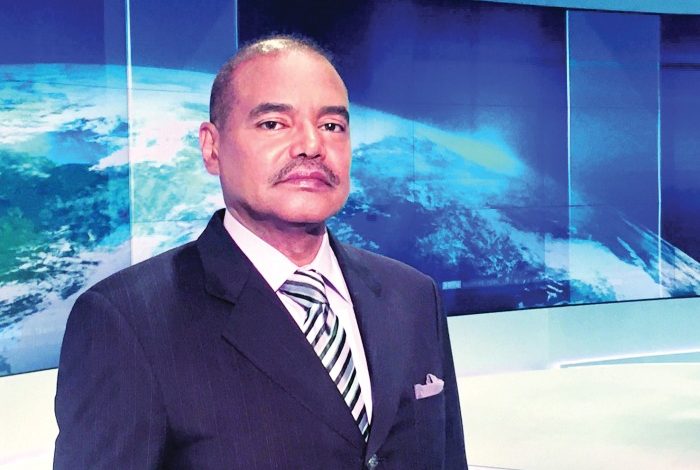Regionalism: The Ogre Threatening Sudan’s Stability and Its Search for a Policy Framework

By Mohamed Sulieman Al Shazly
mohsulieman@gmail.com
Caution is warranted in the use of the term “marginalisation.” Today, it is not only Darfur, Eastern Sudan and the Nuba Mountains that speak of marginalisation; communities in Northern Sudan are increasingly voicing similar grievances, pushing back against narratives that portray them as historically privileged or disproportionately developed. That perception began to erode following a visit to the region by the late John Garang, who observed first-hand the stark poverty of northern villages and towns, describing them as deprived and underprivileged.
Residents of Khartoum contend that if the term denotes a lack of access to hospitals and schools, unreliable electricity, the absence of running water, uncollected rubbish piling up in the streets, and soaring unemployment, then they, too, fall within its scope. Ironically, Khartoum—often regarded as “The Centre” against which regional grievances are directed—shares many of the same hardships. In today’s political discourse, “marginalisation” is often used as a euphemism to avoid invoking “regionalism,” a term weighed down by negative connotations and deemed politically incorrect. Yet increasingly, it is regionalism—rather than marginalisation per se—that lies at the heart of Sudan’s fractured politics.
I find myself reflecting on Sudan’s precarious strives for peace and stability. To me, one of its most significant challenges is today’s rise of regionalism, which threatens to undermine any peace-building efforts. In Sudan, regionalism is not merely a push for local governance but a destabilising force that could further fracture an already fragile national framework.
Like many war-torn nations, Sudan is deeply divided, providing fertile ground for regionalist tensions. Driven by a desire for greater control over resources and political power, these tensions stem from an appalling legacy of absent statesmanship and the total collapse of a unifying national vision, compounded by the political class’s unmatched governing fiasco.
We all agree that we are witnessing, as never before, a surge in strong regional sentiments that cannot be ignored. Rooted in historical tribalism, ethnicity and sectarianism, today’s tensions are further exacerbated by entrenched political divisions. This growing wave of regionalism threatens Sudan’s national identity, political stability and social cohesion, undermining prospects for long-term peace.
The most pressing concern is the fragmentation of the state. Long-standing divisions have led to violent regional movements, with groups—such as the semi-autonomous administration in the Nuba Mountains—creating parallel power structures competing for control over territory and resources.
The economic consequences of regionalism are equally concerning. Sudan’s recovery is heavily reliant on international aid and foreign investment. However, the movements that undermine the country’s unity deter potential external partners. The instability they foster makes Sudan a risky proposition for international investors and aid agencies. This perception of instability risks becoming self-fulfilling prophecy, leaving Sudan without the financial support it so urgently needs to rebuild its economy.
I am reminded of how other war-torn nations have grappled with the resurgence of regionalism. In Somalia, the collapse of the central government in 1991 left the country deeply fragmented, with regional divisions—most notably in the autonomous region of Puntland and the self-declared republic of Somaliland—undermining efforts to restore stability. Libya, too, offers a cautionary example: since the fall of Muammar Qaddafi in 2011, the country has been riven by rival governments, militias and regional powerbrokers, each competing for influence and control over strategic and oil-rich territories. Iraq has similarly struggled, with Kurdish aspirations for autonomy straining relations with Baghdad and exacerbating tensions among the country’s ethnic and sectarian groups. In all three cases, regionalism has deepened existing fault lines, rendering the pursuit of peace and national cohesion ever more elusive.
Sudan can still avoid the worst effects of regionalism through comprehensive reconciliation, inclusive governance, and a real commitment to addressing its root causes. Power-sharing that includes all groups may ease tensions and prevent conflict, but it must be guided by merit to avoid weakening the civil service. A federal system granting regional autonomy could offer a balanced solution.
Sudan can still avoid the worst effects of regionalism through comprehensive reconciliation, inclusive governance, and a real commitment to addressing its root causes. Power-sharing that includes all groups may ease tensions and prevent conflict, but it must be guided by merit to avoid weakening the civil service. A federal system granting regional autonomy could offer a balanced solution. At the same time, tackling economic grievances through fair resource distribution and investment in neglected areas is key to addressing the drivers of discontent. I also recognise the importance of fostering a shared national identity. The challenge will not be solved by simply devolving power to the regions; Sudan must unite its diverse population under a common identity. National education programmes, media campaigns, and community-building initiatives could play a crucial role in transcending ethnic, regional, or sectarian divisions, fostering a sense of belonging and solidarity across the country.
I am convinced that international organisations can play a key role in mediating disputes between the central government and regional actors. Diplomatic support and the facilitation of negotiations can ensure that regional movements are addressed in a manner that promotes peace rather than exacerbating conflict. International engagement, when done thoughtfully, can help Sudan navigate the delicate balance between regional autonomy and national unity.
I close by affirming that Sudan’s future depends on overcoming regionalism through inclusive governance, fair resource distribution, comprehensive reconciliation, and a strong national identity. Addressing the roots of regionalism is key to achieving lasting peace and stability.



